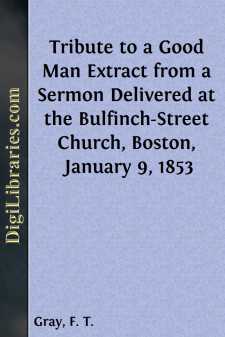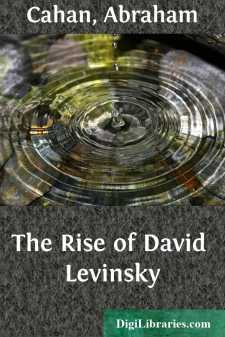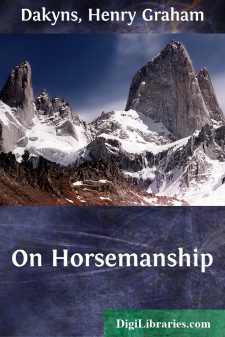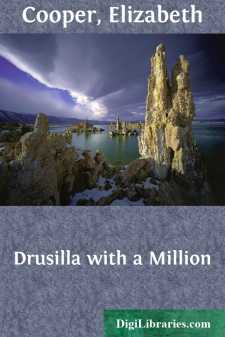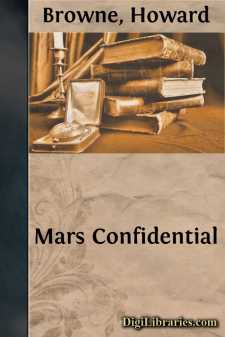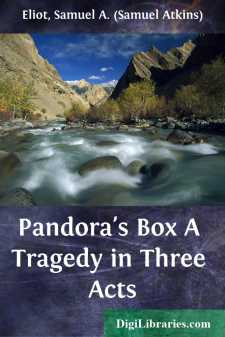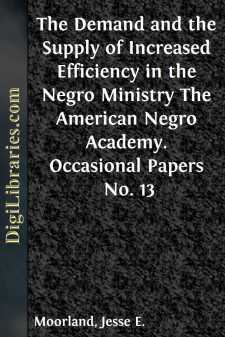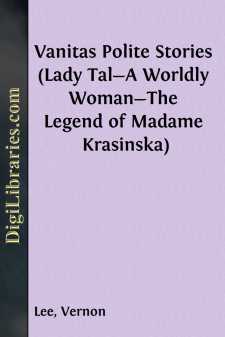Fiction
- Action & Adventure 180
- Biographical 15
- Christian 59
- Classics
- Coming of Age 5
- Contemporary Women 3
- Erotica 8
- Espionage/Intrigue 12
- Fairy Tales, Folklore & Mythology 236
- Family Life 169
- Fantasy 117
- Gay 1
- General 596
- Ghost 32
- Historical 808
- Horror 43
- Humorous 160
- Jewish 25
- Legal 4
- Medical 22
- Mystery & Detective 315
- Political 49
- Psychological 41
- Religious 64
- Romance 159
- Sagas 11
- Science Fiction 730
- Sea Stories 113
- Short Stories (single author) 537
- Sports 10
- Suspense 1
- Technological 8
- Thrillers 2
- Urban Life 31
- Visionary & Metaphysical 1
- War & Military 173
- Westerns 199
Classics Books
Sort by:
by:
F. T. Gray
THE GOOD MAN Among the warmest friends of the Young Men's Christian Union was one, whose departure from among us this community has recently been called to mourn,—one who was beloved by all who knew him; whose wide, expansive benevolence and Christian charity won the admiration of those of every name and sect; who so truly loved the Saviour, and was so truly baptized into his spirit, the spirit...
more...
by:
Anonymous
Daniel 1:1 In the third year of the reign of Jehoiakim king of Judah came Nebuchadnezzar king of Babylon to Jerusalem, and besieged it. 1:2 The Lord gave Jehoiakim king of Judah into his hand, with part of the vessels of the house of God; and he carried them into the land of Shinar to the house of his god: and he brought the vessels into the treasure house of his god. 1:3 The king spoke to Ashpenaz the...
more...
by:
Abraham Cahan
MY landlady was a robust little woman, compact and mobile as a billiard-ball, continually bustling about, chattering and smiling or laughing. She was a good-natured, silly creature, and her smile, which automatically shut her eyes and opened her mouth from ear to ear, accentuated her kindliness as well as her lack of sense. When she did not talk she would hum or sing at the top of her absurd voice the...
more...
ON HORSEMANSHIPIClaiming to have attained some proficiency in horsemanship (1) ourselves, as the result of long experience in the field, our wish is to explain, for the benefit of our younger friends, what we conceive to be the most correct method of dealing with horses. (1) Lit. "Since, through the accident of having for a long time'ridden' ourselves, we believe we have become...
more...
by:
Philippe Massa
MY DEAR FRIEND: I have often declared that I never would write prefaces! But how can one resist a fine fellow who brings one an attractive manuscript, signed with a name popular among all his friends, who asks of one, in the most engaging way, an opinion on the same—then a word, a simple word of introduction, like a signal to saddle? I have read your Zibeline, my dear friend, and this romance—your...
more...
by:
Elizabeth Cooper
CHAPTER I "Drusilla Doane, O Drusilla Doane!" came waveringly around the corner; and the quavering voice was followed by a little old woman who peered at the line of old ladies sitting in the sun. "Is Drusilla Doane here?" she inquired, darting quick birdlike glances from her old eyes at the curious faces that looked up at her approach. A little white-haired woman stopped the darning of...
more...
by:
Howard Browne
Here is history's biggest news scoop! Those intrepid reporters Jack Lait and Lee Mortimer, whose best-selling exposes of life's seamy side from New York to Medicine Hat have made them famous, here strip away the veil of millions of miles to bring you the lowdown on our sister planet. It is an amazing account of vice and violence, of virtues and victims, told in vivid, jet-speed style. Here...
more...
ACT I The hall of EARTH-SPIRIT, Act IV, feebly lighted by an oil lamp on the centre table. Even this is dimmed by a heavy shade. Lulu's picture is gone from the easel, which still stands by the foot of the stairs. The fire-screen and the chair by the ottoman are gone too. Down left is a small tea-table, with a coffee-pot and a cup of black coffee on it, and an arm-chair next it. In this chair,...
more...
In the discussion of this subject I fully recognize the opportunity men have to serve God in any honorable vocation. The Christian lawyer or physician is called of God as truly as a minister. Such men are putting the emphasis on service and not on getting. The condition confronting us is alarming and this warrants the earnest plea in this paper for a greater number of efficient ministers. This is...
more...
by:
Vernon Lee
My Dear Elena, We had a conversation once, walking on your terrace, with the wind-rippled olives above and the quietly nodding cypress tufts below—about such writings as you chose to compare with carved cherry-stones. We disagreed, for it seemed to me that the world needed cherry-stone necklaces as much as anything else; and that the only pity was that most of its inhabitants could not afford such...
more...


